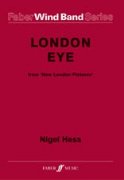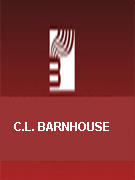Results
-
 £139.99
£139.99Johannes Gutenberg (Concert Band - Score and Parts)
As cultural ambassador for the state, the Orchestra of the Rhineland-Pfalz State Police commissioned this work to celebrate the 60th anniversary of its founding in 2013. What do Steve Jobs, Mark Zuckerberg and Johannes Gutenberg all have in common? They all represent a revolution in communication and information technology. Johannes Gutenberg, ?man of the second millennium?, was born Johannes Gensfleisch in the German town of Mainz around 1400. He is regarded as the inventor of the printing press with movable type, which ushered in a media revolution - thanks to his invention, knowledge could find its way to every level of society for the first time. This work is an homage to the great man and the far-reaching impact of his invention that is still felt to this day. 08:19
Estimated dispatch 7-14 working days
-
 £144.99
£144.99Jungle (Concert Band - Score and Parts)
In this fascinating piece we experience an exciting adventure in the jungle. The entrance into the "green hell" turns out to be very dangerous with wild monkeys and the roaring of elephants accompanying our way through the dark forest. There seems to be something lurking behind every tree and all of a sudden, a horde of savage cannibals appears. A wild hunt sets off and we escape at the last second by jumping from a cliff into the savage water below. Exotic birds welcome us in a new landscape and from somewhere in the distance we can hear a bamboo flute playing. This is a journey of no return.... The effects (elephants, wild monkeys, exotic birds and rain) should be produced with much creativity - individual ideas are always desirable and welcome. 08:00
Estimated dispatch 7-14 working days
-
 £209.99
£209.99La Terre Wind Band Set (Score & Parts)
In the composition 'La terre' several aspects of Earth have been translated into sounds in an associative manner. The first part depicts Nature, Mother Earth, stability, the soil which is the source of life. Earth symbolizes tradition, rituals, fertility. In the music of the composition this can be heard in tonic and ostinato passages. Furthermore, human emotions such as gladness, sorrow, wonder, resignation, hope and despair, indissolubly connected as they are to mankind's life on earth, are musically reflected in sudden gusts of expression. Earth for us human beings is the solid ground on which everything in life takes place. In the second part different moods are evoked in a sort of toccata. Now and then the music sounds fragmented, at other times as a solid whole. The robustness of the music in this part has its roots in the earth, originates from it. It reflects stability and strength, but love and nostalgia are also present in soft and fragile tones. 'La terre' is a musical narrative about Earth, in which music has been given ample room to show its many-sided beauty. 14:00
Estimated dispatch 7-14 working days
-
 £49.50
£49.50Latin Bell Carol
This arrangement is Robert W. Smith's second in a series of unique cultural settings of the traditional holiday favorite. He has added infectious Latin rhythms to the famous Ukrainian Bell Carol with incredibly effective results! The percussion is featured throughout using instruments such as bongos, guiro, timbales, claves and surdo (optional floor tom). This will be the band and audience favorite as the centerpiece or finale of your holiday concert.
Estimated dispatch 7-14 working days
-
 £64.35
£64.35Latin Sun
A melodic solo for either Alto Sax or Trumpet (it would also sound great on flugelhorn) with band. The solo parts are medium in difficulty and the band parts are slightly easier. Originally written to be performed as a second movement to "Daydreams", this writers earlier solo with band piece which has proven so popular. Excellent program material for you to show off one of your best students or to use when you bring in a guest soloist. This is very nice!
Estimated dispatch 7-14 working days
-
 £224.99
£224.99Les Marteaux de la Marine Wind Band Set (Score & Parts)
Les Marteaux de La Marine was composed in 1999 as a commission by the Marine Band of the Royal Netherlands Navy. The composition contains three static elements which interchange. Static in this case means that development of the material is not pursued (by the composer). The first element with which the piece begins is tranquil and colourful. The second element is sharp and incisive, while the third expresses energy. In all elements a repeated tone is the starting point which explains the hammers in the works title.The instrumentation is richly variegated with a harp also determining the palette of colours in the slower movements. The composition opens with an atmospheric Larghetto containing fine harmonies in the soft and subtly moving wood-winds. The introduction breathes an impressionistic atmosphere in which expressive cantilenas and soloistic agile motifs stand out. A strong setting is followed by an Allegro virtuoso containing fast motifs contrasted with short and rhythmic stars of the various instrumental sections. Trumpets and horns add a virtuoso bugle-call motif. After a short stringendosection, the transparent Larghetto returns with a varied setting of the opening elements. The beautiful leading roles in this section are reserved for cornet (trumpet) and horn. Subsequently, the flashing Vivo starts with continuous movements in triplets from both wood-winds and brass. Next, the opening Allegro re-appears once again and thus Les Marteaux de la Marine ends with a fast and virtuoso climax. Les Marteaux de La Marine was selected as a compulsory grade 6 contest piece for symphonic bands in the Netherlands. 17:45
Estimated dispatch 7-14 working days
-
 £45.00
£45.00London Eye (from New London Pictures) (Concert Band - Score and Parts) - Hess, Nigel
London Eye' is an incredibly large rotating wheel situated on the South Bank of the River Thames. This movement depicts a 'flight' on this riverside wheel, at the top of which the panoramic view of London is breath-taking and the expanse of the music is a suitable depiction of that view.This piece is the second movement of Nigel Hess' 'New London Pictures' which represents elements of London in the 21st Century.Duration: 4.00
Estimated dispatch 7-14 working days
-
 £44.55
£44.55March of the Warlords (Concert Band - Score and Parts)
A light rock ballad that's very playable yet with a surprising degree of sophistication and appeal. Can be effectively programmed as the second part of the Western Suite.
Estimated dispatch 7-14 working days
-
 £69.99
£69.99March,Song & Dance Wind Band Set (Score & Parts)
For beginners, this is an ideal suite. A smooth march, a esspresive second part and an lightly end. 05:15
Estimated dispatch 7-14 working days
-
 £109.99
£109.99Metalla Wind Band Set (Score & Parts)
Metalla was commissioned by the 'Kreisverband Altenkirchen' of Germany and dedicated to Ottomar Jung. The composer himself conducted the premiere of the piece, which was performed by the 'Jugendorchester Kreisverband Altenkirchen' on 25 March 1999.The region of Altenkirchen is known for its iron mines, which find musical expression in the dark mood of the introduction (andante misterioso). This effect is accomplished with overlapping seventh intervals, orchestral crescendos, a succession of broad chords and the presentation of most themes in the middle register of the band.The dynamic section (allegro energico) that follows the introduction is characterized by concise figures in the brass and a second motif, a kind of rippling motion depicting the Sieg River, an important element in the landscape of the Altenkirchen region.The work closes with a final theme that returns a number of times, albeit in different guises. After a brief repeat of the seventh intervals from the beginning, a last radiant chord signals the end of the piece. 0:05:15
Estimated dispatch 7-14 working days
